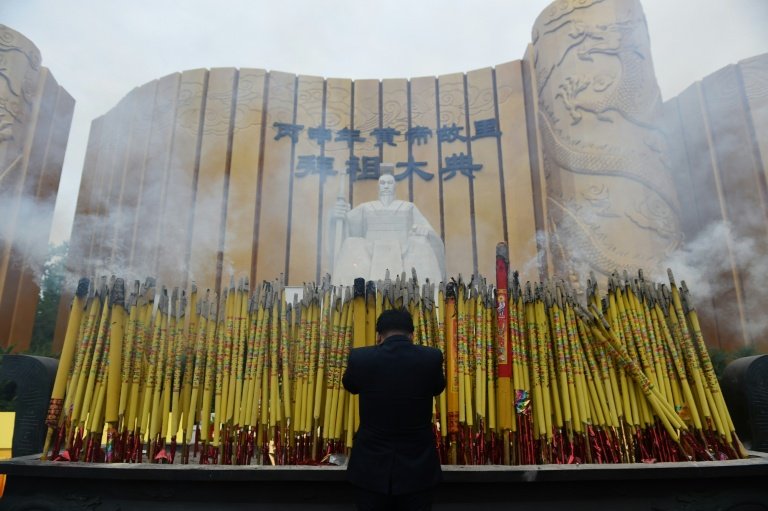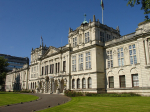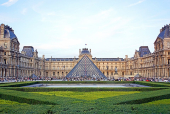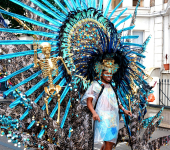
Scarves emblazoned with red dragons draped over their black business suits, Chinese officials lit incense and bowed solemnly at the feet of a mythical ancestor known as the Yellow Emperor.
The avowedly atheist Communist Party is promoting worship of the ancient figure as it seeks to bolster its legitimacy -- and emphasise Chinese blood ties, including with Taiwan ahead of the inauguration of Beijing-sceptic president Tsai Ing-wen.
Thousands gathered in the heartland province of Henan, where the Yellow Emperor –- described in archaic annals and present day schoolbooks as the
founder of Chinese civilisation -- is said to have been born 5,000 years ago.
Shots from gold-painted cannon began the annual ceremony, and the crowd, many in replica antique costume, listened to a booming announcer heralding the "ancestor of the Chinese nation".
High-ranking cadres –- including the province's top official, and a former vice culture minister -– processed up a red carpet, placed offerings in front of an altar and gazed into the statue's chiselled visage, before bowing.
Lydia Zhou, an investment manager who flew from Shanghai to attend, told AFP: "I'm here to worship. He is our ancestor and this is his birthplace."
The lauding of an individual comes as Communist chief Xi Jinping is increasingly lionised in China's state-run media, and the announcer echoed his slogans: "Revive China, a one hundred year dream, ruling by law, moderate prosperity for all."
- Mixed up -
Historians say there is little evidence the Yellow Emperor actually existed, but school textbooks widely describe him as the founder of Chinese culture and ancestor of all Chinese people –- including its 55 official ethnic minorities, some of whom chafe against identifying as Chinese.
The same books assert China has existed for 5,000 years since his birth, though historians date the first Chinese dynasty -- covering a tiny fraction of the present country -- to around 1600 BC.
The Communist Party attempted to outlaw religion after taking power in 1949.
Under Mao Zedong, "Yellow Emperor worship was seen as feudal superstition," Ren Dahuan, vice president of a state-run research association into the figure, told AFP.
But now the party says religion can be harnessed for social good ahead of it eventually melting away with economic progress.
Searching for tourist and investment income, officials in the emperor's supposed birthplace of Xinzheng revived offerings in the 1990s. The ceremony was endorsed by the State Council, China's cabinet, in 2008.
- Flesh and blood -
With economic growth slowing, the ruling party has turned to a grab-bag of traditions as it attempts to portray itself as a natural outgrowth of Chinese culture.
"These events are becoming bigger and bigger, because the state needs them to explain its legitimacy," said Zhu Dake, a cultural critic at Shanghai's Tongji University.
At the same time it is looking to forge a single identity for an ethnically diverse population.
"The state needs this bloodline," Zhu added. "It's a political strategy. China is a multi-ethnic country. Chinese people are a mixed-up thing, rather than descendants of a single ancestor."
The message of unity applies to all ethnic Chinese, including the diaspora abroad and those in Taiwan, which split from the mainland in 1949 at the end of a civil war.
Its new president Tsai -- from the traditionally pro-independence Democratic Progressive Party -- will be inaugurated on Friday.
Among those lighting incense in Xinzheng last month was the head of Beijing's Taiwan Affairs Office, which handles relations with Taipei.
Similarly, the former vice-chairman of Taiwan's incumbent Kuomintang party Chun Chun-po attended another event at the reputed site of the emperor's death in neigbouring Shaanxi province, telling local media: "As descendants of the Yellow Emperor, this is the happiest event in life."
His remarks recalled those of Taiwan's outgoing leader Ma Ying-jeou at last year's first cross-strait summit since 1949, when he said that people on both sides of the Taiwan Strait were "of Chinese nationality" and "children of the Yellow Emperor".
For his part President Xi offered: “We are brothers connected by flesh even if our bones are broken, we are a family whose blood is thicker than water."
Both men's declarations were disparaged by many in Taiwan, where Tsai's message of Taiwanese identity resonated with voters and surveys show people feel increasingly separate from the mainland.
But in the People's Republic, where the ruling party tightly controls presentations of history, there are few such concerns.
After the official ceremonies at the Shaanxi tomb complex -- refurbished a decade ago at a cost of around 250 million yuan (US$38 million)-- thousands of ordinary citizens poured in, many prostrating themselves before the emperor's statue.
"He definitely existed, there are ancient books and bone carvings which prove it," said student Shen Yuyan.
"He's the ancestor of all Chinese ethnic groups and of Taiwanese people."afp









































